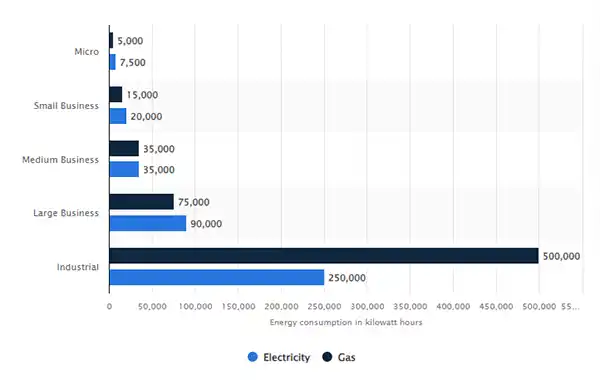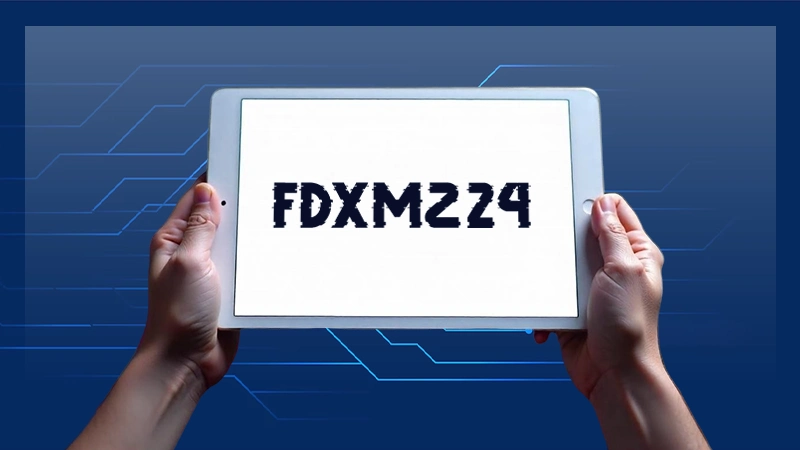The Role of Smart Meters in Streamlining Your UK Business Energy Usage
Key Takeaways
- UK businesses are highly incentivized to implement smart energy meters on their campuses.
- Along with households, organizations are also motivated to implement this tech so that they can cut 2-3% of their average power consumption.
- A well-analyzed data and proper record keeping can provide constant benefits and perks in both monetary terms and also by schemes.
This graph shows how much energy plays a significant role in their business operations. As you can see, businesses of every size use a lot of kilowatt-hours to carry out their operations.

In this article, we will delve into the significance of smart meters and how they can empower businesses to optimize their usage, cut costs, and contribute to a sustainable future.
Get to know local suppliers that implement these devices, by using the Business Energy Comparison platform.
Understanding Smart Meters
Smart meters are advanced digital devices that replace traditional gas and electricity meters. Unlike their conventional counterparts, they can communicate directly with energy suppliers, enabling automatic and accurate meter readings. They provide real-time data on consumption, offering a comprehensive overview of a business’s usage patterns.
Benefits of Smart Meters for UK Businesses
- Real-Time Insights: Smart meters provide businesses with up-to-date information on their energy consumption. This empowers enterprises to make informed decisions about their usage promptly. By understanding when and how it is being consumed, companies can identify inefficiencies and implement measures to optimize usage.
- Cost Savings: Energy costs are a significant expense for organizations. These devices enable accurate tracking of usage, ensuring that companies are billed only for actual consumption.
Moreover, organizations can identify high-consumption periods and adjust operations to reduce usage during peak hours, leading to cost savings. If estimated, your business can save up to 2-3% of its regular consumption. It might not feel much but in the long term, it can save a hefty amount of money.
Environmental Impact: By facilitating better management, they contribute to reducing the carbon footprint of the venture. Through greater awareness of consumption patterns, enterprises can identify areas of wastage and work towards sustainability goals.
- Enhanced Efficiency: These devices even help in eliminating the need for manual meter readings, reducing administrative burdens for organizations. The automated data collection process enables suppliers to bill accurately and promptly, reducing billing disputes and delays.
Implementing Smart Meters in Your Business
- Choosing the Right Smart Meter Provider: When considering their adoption, businesses must select a reputable and reliable supplier. Research different providers, compare their services and customer reviews, and choose one that meets your business’s specific needs.
- Installation Process: The installation of smart meters is a straightforward process. Trained technicians will replace the existing meters with advanced ones, ensuring a seamless transition. It is necessary to communicate the installation plan with employees and stakeholders to minimize disruptions.
- Staff Training: To enjoy the most out of them, provide staff with training on how to interpret the data and use it to optimize consumption. Educating employees about the benefits will encourage active participation in energy-saving initiatives.
Utilizing Smart Meter Data
- Energy Consumption Analysis: Smart meters provide ventures with detailed information on their consumption in real-time. Analyze this data regularly to identify patterns and trends. By understanding peak usage periods, ventures can adjust their operations to consume less energy during those times.
- Identifying Energy Inefficiencies: These devices can pinpoint areas where power is being wasted. Leaky equipment, inefficient appliances, or outdated systems can be identified and replaced or repaired, leading to energy and cost savings.
- Setting Energy Goals: Utilize the provided data to set realistic energy-saving goals for your business. Track progress regularly and celebrate achievements. This fosters a culture of efficiency among employees and reinforces the importance of sustainable practices.
Fact: According to the government report from the Department of Business, Energy and Industrial Strategy, there are now over 14.3 million smart and advanced meters operating across homes and businesses in Great Britain, by both large and small suppliers – a 4.2 percent increase from the previous quarter.
Integration with Energy Management Systems
- Automated Monitoring: Smart meters can integrate with management systems, enabling businesses to automate power monitoring. This integration streamlines data analysis and reporting, freeing up resources for other critical tasks.
- Demand Response Programs: These devices can participate in demand response programs. These programs allow enterprises to adjust their usage during peak demand periods when electricity prices are high. By reducing consumption during these times, enterprises can access cost incentives from suppliers.
Potential Challenges and How to Overcome Them

- Initial Investment: Implementing them may require an initial investment. However, businesses should consider the long-term benefits and potential cost savings that outweigh the upfront expenses.
- Data Security: Meters collect sensitive data about a business’s energy consumption. To address data security concerns, choose a reputable smart meter provider with robust data protection measures.
- Employee Resistance: Employees may be apprehensive about the changes brought about by the tech. Communicate the benefits clearly, address concerns, and involve employees in the transition process to gain their buy-in.
Smart Meter Regulations and Incentives

- Mandatory Smart Meter Rollout: The UK government has been actively promoting their adoption to achieve its energy efficiency and sustainability goals. It launched a nationwide rollout program, requiring suppliers to install them in all eligible homes and organizations. Staying compliant with these regulations is necessary for them to avoid penalties and make the most of the benefits offered by these meters.
- Financial Incentives: To encourage enterprises to embrace meters, various financial incentives and rebates are available. These incentives can help offset the initial investment and provide an added incentive for companies to take the leap toward energy efficiency.
Smart Meters and Future Innovations

- Smart Grid Integration: Smart grids are all equipped with these meters. As the sector evolves, it will play a vital role in integrating renewable sources and supporting two-way communication between energy suppliers and consumers. This advancement will enable businesses to become active participants in managing their usage and even sell excess energy back to the grid.
- Internet of Things (IoT) Integration: Meters are poised to be a key component of the Internet of Things (IoT) ecosystem. By integrating with other devices and systems, companies can create a comprehensive and interconnected management platform. This seamless integration will enable them to automate energy-saving measures, such as turning off lights or adjusting heating and cooling systems based on real-time data.
Smart Meters: Redefining Energy Optimization for UK Businesses
Embracing smart meters is a transformative step for UK firms seeking to streamline their energy usage. The real-time insights, cost savings, and environmental benefits offered by these meters position them as indispensable tools for modern-day energy management.
By utilizing the energy comparison tool and the data provided, firms can optimize their operations, reduce costs, and make significant contributions to a greener and more sustainable future. Their integration with emerging technologies like the grid and IoT opens up a realm of possibilities for organizations to take charge of their energy consumption actively.
As the regulations and incentives continue to support their widespread adoption, the success stories of companies reaping the rewards of energy efficiency serve as inspiration for others to follow suit. Embrace smart meters today, and embark on a journey towards a brighter, more sustainable, and prosperous future for your UK business.






